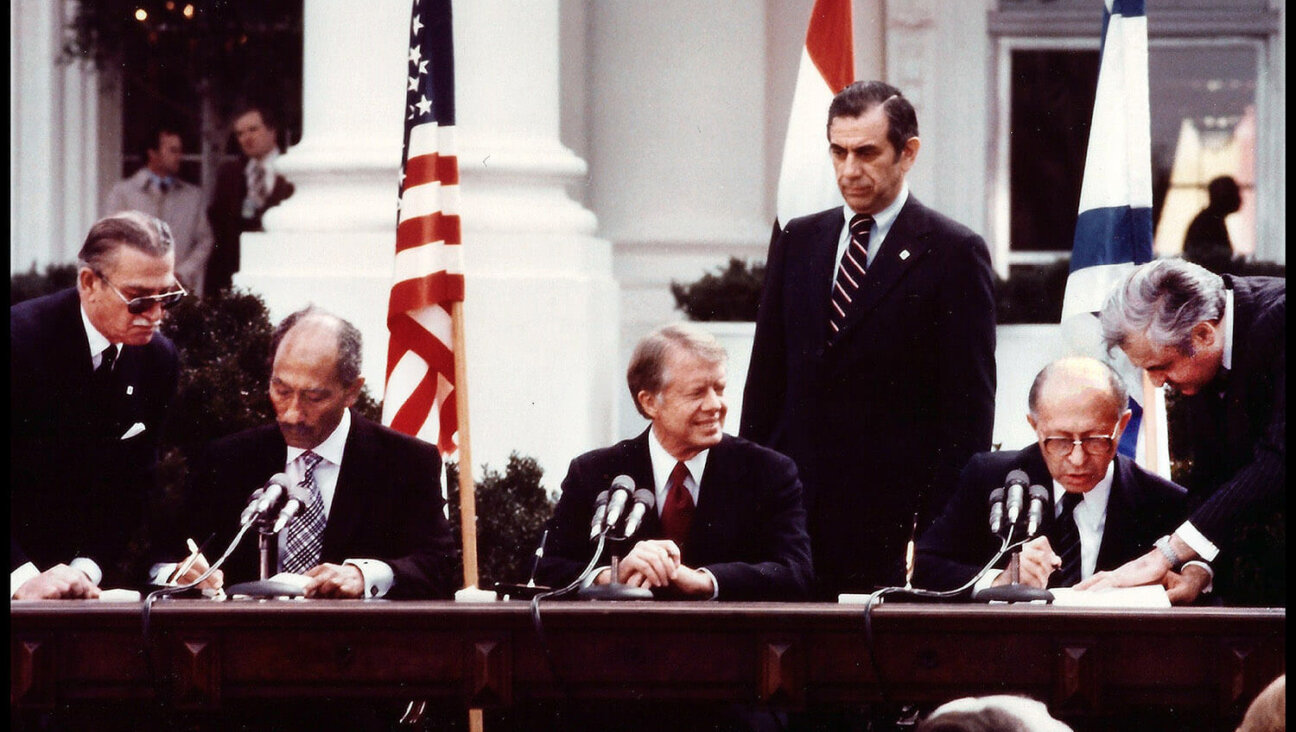IN OTHER WORDS…
War of Ideas: “During the 19th century, many people around the world earnestly believed that mankind had discovered the secret of steady human progress, and that secret was the culture of liberalism — the culture of rights, rationality, and innovation, which had arisen in Europe and spread to other places,” Paul Berman writes in the May 9 issue of The Chronicle of Higher Education.
The horror of World War I, however, invalidated for many the liberal impulse, spawning a series of radically anti-liberal rebellions — “rebellions that dreamed of overthrowing liberal society and replacing it with something different, rocklike, solid, and permanent.” In liberalism’s stead sprang various manifestations of totalitarianism, from Communism to Fascism to Nazism.
The rejection of liberal civilization also swept the Muslim world, giving rise to religious fundamentalists and pan-Arabists. Berman argues that defeating today’s heirs of the Muslim totalitarian impulse — Al Qaeda and Saddam Hussein’s Baath Party chief among them — will require nothing less than rebuilding the liberal civilization envisioned by its 19th-century champions.
“There is only one way to defeat a rebellion against liberalism, and that is to ensure the victory of liberalism,” he writes. “The ultimate response to totalitarianism has got to be, in short, a war of ideas.”
With Washington long on ideology but short on ideas, Berman argues, the onus is on liberals around the world to heed the call to intellectual arms.
“Because the Bush administration and its neoconservative advisers (and, worse, its anti-neoconservative advisers) have placed such little emphasis on matters of persuasion and ideas,” he writes, the battle of minds “will have to depend on what other people do, not the Bush administration but the rest of us, beginning with the liberal intellectuals of the Western countries and the Muslim countries alike. We intellectuals will have to put up our own fight against Muslim totalitarianism, just as liberal intellectuals did in the past against Fascism and Stalinism.”
* * *
War of Ideas II: Several hawkish pro-Israel intellectuals and activists, meanwhile, are putting up a fight of their own against what they perceive as an ideological capitulation of the first degree by some members of the nationalist camp.
The Summer 2003 issue of Azure features letters to the editor from, among others, Harvard University Yiddish and comparative literature professor Ruth Wisse and Americans for a Safe Israel chairman Herbert Zweibon blasting the journal for backing “The Kineret Declaration,” a statement of Zionist principles formulated in 2001 that was endorsed by more than 100 prominent Israelis from across the religious and political spectrum.
Wisse dismisses the declaration — which included statements on Israeli democracy, the country’s Jewish character, its Arab minority and Palestinian rights — as a “document of nervous self-justification” that sends the wrong message to other democratic countries and the Arab world.
Rather than assert that “The State of Israel is committed to the pursuit of peace” — as the framers of the Kineret Declaration did — Wisse argues for a more defiant line: “The State of Israel demands unconditional recognition and peaceful coexistence, as is the right of every member of the United Nations.”
Perhaps more damning than Wisse’s critique are the rhetorical assaults launched by opponents of a two-state solution, who slam Azure for endorsing a document that they say recognizes the right of the Palestinians to a state and the right of Israeli Arabs to self-determination.
“When the price of unity is endorsing the lowest common denominator, it is not worth paying,” Zweibon writes. “The declaration… seems rooted in the kind of never-never-land thinking that politicians such as Yossi Beilin and Shimon Peres employ.” In exchange for concessions regarding nationalist ideology, he laments, the rightwing signatories to the declaration received nothing but leftwing endorsements of longtime Zionist ideological and political staples.
Wisse’s and Zweibon’s fighting words drew a return volley from Yoram Hazony, whose 2000 book “The Jewish State: The Struggle for Israel’s Soul” took aim at leftwing Israeli intellectuals. Those panning Azure’s endorsement of the Kineret Declaration, he responds in the same issue, are underestimating the need for a reconstructed Zionist center.
“Those who deride the value of this ‘dance’ among Jews of various persuasions seem not to have grasped,” Hazony writes, “what it means for the individuals in question to publicly negotiate and reach agreement on a joint statement of Jewish interests, needs, and aspirations.”
A message from our Publisher & CEO Rachel Fishman Feddersen

I hope you appreciated this article. Before you go, I’d like to ask you to please support the Forward’s award-winning, nonprofit journalism so that we can be prepared for whatever news 2025 brings.
At a time when other newsrooms are closing or cutting back, the Forward has removed its paywall and invested additional resources to report on the ground from Israel and around the U.S. on the impact of the war, rising antisemitism and polarized discourse.
Readers like you make it all possible. Support our work by becoming a Forward Member and connect with our journalism and your community.
— Rachel Fishman Feddersen, Publisher and CEO























